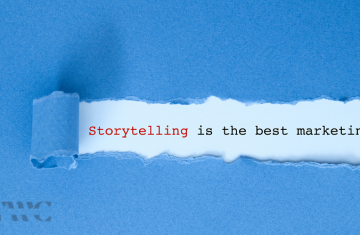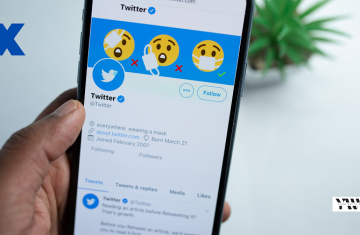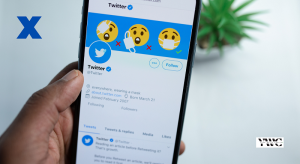As a startup brand or business, a lot of things can go wrong even with a great product that makes a difference in the market. This is usually because someone is already doing what you’re doing and sometimes in the same way you’re doing it, so it’s easy to get swallowed by existing brands.
But just as you can go wrong in a saturated market, it’s also possible to go right and stand out.
In a world where everyone is doing the same thing and moving in the same direction, with compelling storytelling, you can distinguish your brand.
This article will explore the power of storytelling for startups and how it can help you stand out in a crowded market.
Why Is Storytelling Important for Startups?
Storytelling isn’t a mere marketing buzzword; it’s a strategic tool that resonates on a human level. Research shows that stories are 22 times more memorable than facts alone . In a crowded market, where startups are constantly vying for attention, a well-crafted narrative can create a connection that transcends the noise.
The Elements of a Compelling Startup Story
To create a compelling startup story, focus on these key elements:
- The Hero’s Journey: Position your customer as the hero of the story. Your startup should be the guide that helps them overcome challenges and achieve their goals.
- Authenticity: Authenticity is non-negotiable. In an age where consumers are skeptical of corporate messaging, being genuine in your storytelling builds trust. Share your startup’s origins, challenges, and triumphs to create a narrative that resonates.
- Emotional Appeal: Emotional storytelling drives action. Studies reveal that emotionally charged content is more likely to be shared and remembered . Whether it’s joy, fear, or hope, tap into emotions that align with your brand and audience.
- Clear Messaging: Your story should convey a clear and concise message. Avoid jargon and complexity. Instead, focus on simplicity and clarity to ensure that your message is easily understood and remembered.
You May Also Like:
How to Use Storytelling in B2B Marketing
7 Common Storytelling in Marketing Mistakes and How to Avoid Them
Differentiating Your Startup Through Storytelling
Standing out in a crowded market requires more than just a compelling story; it requires a unique angle. Here are some strategies to differentiate your startup:
- Niche Down: Identify and target a specific niche within your market. By focusing on a smaller, more defined audience, you can create a story that speaks directly to their unique needs and desires. This level of personalization makes your startup more relevant and appealing.
- Leverage Customer Stories: Instead of solely focusing on your startup’s story, highlight your customers’ success stories. User-generated content and testimonials can serve as powerful narratives that build credibility and trust.
- Incorporate Data and Stats: While stories are emotionally engaging, data adds credibility. Use statistics to back up your claims and enhance your narrative. For example, “Startups that prioritize storytelling see 30% higher engagement rates compared to those that don’t” .
- Innovative Formats: Explore different storytelling formats, such as video, podcasts, and interactive content. These formats can make your story more engaging and accessible to a broader audience.
- Interactive Storytelling: Engage your audience by allowing them to participate in the story. Whether it’s through a choose-your-own-adventure format or user-generated content, interactive storytelling creates a deeper connection.
Measuring the Impact of Your Storytelling Efforts
It’s not enough to tell a great story; you need to measure its impact. Here are some key metrics to consider:
- Engagement Rates: Track how your audience interacts with your story. Metrics like click-through rates, social shares, and comments can give you insight into the effectiveness of your narrative.
- Conversion Rates: Measure how many people take the desired action after engaging with your story. Whether it’s signing up for a newsletter, downloading an app, or making a purchase, conversion rates are a direct indicator of your storytelling success.
- Brand Sentiment: Use social listening tools to gauge how your story is influencing public perception of your brand. Positive brand sentiment indicates that your story is resonating with your audience.
- Customer Retention: A compelling story can foster loyalty, leading to higher customer retention rates. Monitor how storytelling impacts repeat business and long-term customer relationships.
You May Also Like:
How to Use Storytelling in Marketing to Close Sales
10 Ways to Identify Your Brand’s Core Story
Top 10 Brands That Have Mastered Storytelling in Marketing
Conclusion
In a crowded startup market, storytelling is not just an option—it’s a necessity. Your startup story is the heartbeat of your brand. When it’s compelling, it grabs attention, resonates deeply, and drives action.
Focus on crafting a narrative that’s authentic, emotionally engaging, and uniquely yours. You won’t just stand out, you’d make a lasting impact.
So, take a step back and look at your startup’s journey. What’s the story you want to tell? And more importantly, how will you tell it in a way that not only gets noticed but also gets remembered?
I’m Debbie, “Your Write Choice.” I offer content marketing and ghostwriting services that connects and converts, editing par excellence and peace of mind for my clients. Hire my services.
Download my free storytelling for sales workbook.
Enroll in my “Master Storytelling for Sales Course.”












